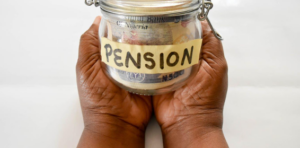A financial disaster plan is a well-crafted personal financial plan based on your family’s values, goals, and objectives. The last few years have thrown different curve balls at several people due primarily to the world economic downturn. Many businesses have curtailed operations by reducing working hours and even laying off employees. This has affected consumers, many of whom were not prepared for these financial shocks.
As we progress during these times, there are indeed many other crises that will be upon us consistent with the prophetic words. To mitigate the risk of these sudden economic downturns, you should have a financial “disaster plan” in place. Here are some recommendations:
- Build up your emergency funds – Set aside savings to meet unexpected occurrences. Remember a very familiar rule: “Save for a rainy day.” The habit of saving from each paycheck pays off in the long term. Even if it’s a small amount to start, it will grow over time. An emergency fund goes a long way towards helping one stay afloat, ensuring that essential bills are paid, and reducing the stress from an unexpected job loss or other dislocation.
- Keep a record of your non-essential spending – It’s always key to be aware of your essential and non-essential ongoing expenses. When you are aware of your spending, you will better know how to pivot.
- Understanding where your money goes gives you a clearer picture of your cashflow realities – Recent lockdowns have disrupted daily spending habits of dining out and personal care luxuries. Have a reconsideration of essential needs and practice to “ban you belly” at times.
- Debt cancellation – Cancelling—if not avoiding—debt while also building strong cash savings is key to surviving a financial crisis. At a minimum, having six months of living expenses in cash and eliminating debt is a massive step in the right direction. This is not easy, but it is achievable if you are patient and committed. Once this goal is attained, life becomes much less stressful and decision-making much easier.
- Insurance – It provides a safeguard against the unexpected. Whether it’s life, health (critical care), homeowner’s, or anything else you need to be protected, a policy ensures that should anything go wrong, you’re covered.
- Know your survival number – It’s difficult to predict when an actual crisis will hit. But as Kingdom people, we should always be prepared; we know the word of God as shared in Luke 21 verse 11: “There will be great earthquakes, famines, and pestilences in various places, and fearful events and great signs from heaven.” Therefore, analyse the “must-haves” in your life and business—the bare essentials; from that, you calculate the minimum cash you need to stay afloat. Work towards saving that up as your “crisis” cash.
- Talk with your financial advisor – In recent times, we have seen how quickly shifting takes place in the financial markets. Get a better understanding of your investment portfolio. Explore more conservative products that can help you weather volatility. Bonds, and certain types of annuities limit downside but still allow your principal to grow. Fixed-indexed annuities even allow policyholders to capture growth when the associated index performs well without investing in the underlying stocks.






